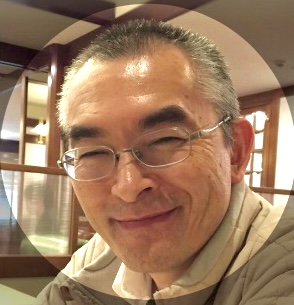フリーページ
コメント新着
全て
| カテゴリ未分類
| ホメオパシー
| 未来の医療
| 体の叡智
| 治療
| 食養生
| ガンの治癒
| アントロポゾフィー
| スブド
| スピリチュアリティと霊学
| 不登校とうつ病
| 新逗子クリニックについて
| 野毛クリニックについて
| 家族について
| 腸内洗浄
| 子ども達について
| ほほえみながら生きよう!
| The Heart of Awareness
テーマ: 不二一元論・悟り(100)
カテゴリ: The Heart of Awareness
1
My child,
You may read or discuss scripture
As much as you like.
But until you forget everything,
You will never live in your heart.
我が子よ、
あなたは好きなだけ聖典を読みあさり、
討論することに忙しいかもしれない。
決してハートで生きることはないだろう。
2
You are wise.
You play and work and meditate.
But still your mind desires
That which is beyond everything,
Where all desires vanish.
あなたは賢く遊び、仕事をし、瞑想をする。
それでもあなたの心はいまだに、
すべてを越え、
すべての欲望が消え去る彼方を望んでいる。
Striving is the root of sorrow.
But who understands this?
Only when you are blessed
With the understanding of this teaching
Will you find freedom.
だが、誰がこれを理解するというのだろう?
この教えを理解して祝福をうけるとき、
初めてあなたは自由を見いだすだろう。
4
Who is lazier than the master?
He has trouble even blinking!
But only he is happy.
No one else!
師より無精な人がいるだろうか?
瞬きひとつにさえ苦労する!
それでも、ただ彼だけが幸せな人なのだ。
ただ彼だけが!
5
Seeing to this,
Neglecting that. . .
But when the mind stops setting
One thing against another,
It no longer craves pleasure.
It no longer cares for wealth
Or religious duties or salvation.
これを見て、
あれを無視する…
だが、心がひとつのことを別のことに対立させる習慣をやめると、
それはもはや快楽を渇望せず、
富や修行や、解脱のことなどもはや気にしなくなる。
6
Craving the pleasures of the senses,
You suffer attachment.
Disdaining(~を価値のないものとみなす) them,
You learn detachment.
But if you desire nothing,
And disdain nothing,
Neither attachment nor detachment bind you.
感覚的快楽への渇望から
執着が生まれる。
それらに価値がないと見なすことが出来たとき、
あなたは無執着を学ぶ。
だが、何も望まず
そして何も拒絶しなければ、
執着も無執着もあなたを縛りつけはしない。
7
When you live without discrimination,
Desire arises.
When desire persists,
Feelings of preference arise,
Of liking and disliking.
They are the root and branches of the world.
識別なしに生きるときに
欲望が生まれる。
欲望がつきまとえば、
好き嫌いといった選り好みの感覚も生まれる。
それらが、世界の根であり枝なのだ。
8
From activity, desire.
From renunciation, aversion.
But the man of wisdom is a child.
He never sets one thing against another.
It is true!
He is a child.
活動から欲望が、
放棄から嫌悪が生まれる。
ところが賢者は子どもなのだ、
彼はけっしてひとつのことを別の事に対立させたりしない。
それは本当だ!
彼はこどもなのだ。
9
If you desire the world,
You may try to renounce it
In order to escape sorrow.
Instead, renounce desire!
Then you will be free of sorrow,
And the world will not trouble you.
もしあなたが世界を望めば、
悲しみを避けるために世界を放棄しなければならないだろう。
その代わりに、欲望を放棄しなさい!
そうすれば、あなたは悲しみからも自由になり、
世界があなたをかき乱すこともないだろう。
10
If you desire liberation,
But you still say "mine,"
If you feel you are the body,
You are not a wise man or seeker.
You are simply a man who suffers.
もしあなたが自由を望みながら、
まだ「私のもの」などと言い続けて、
自分を身体だと感じ続けるなら、
あなたは賢者でも探求者でもなく、
あなたはただの苦しむ人間だ。
11
Let Hari teach you
Or Brahma, born of the lotus,
Or Shiva himself!
Unless you forget everything,
You will never live in your heart.
ハリ、蓮から生まれたブラフマン、
あるいはシヴァから学ぶがよい。
あなたがすべてを忘れ去るまでは、
決してハートで生きることはないのだ。
My child,
You may read or discuss scripture
As much as you like.
But until you forget everything,
You will never live in your heart.
我が子よ、
あなたは好きなだけ聖典を読みあさり、
討論することに忙しいかもしれない。
決してハートで生きることはないだろう。
2
You are wise.
You play and work and meditate.
But still your mind desires
That which is beyond everything,
Where all desires vanish.
あなたは賢く遊び、仕事をし、瞑想をする。
それでもあなたの心はいまだに、
すべてを越え、
すべての欲望が消え去る彼方を望んでいる。
Striving is the root of sorrow.
But who understands this?
Only when you are blessed
With the understanding of this teaching
Will you find freedom.
だが、誰がこれを理解するというのだろう?
この教えを理解して祝福をうけるとき、
初めてあなたは自由を見いだすだろう。
4
Who is lazier than the master?
He has trouble even blinking!
But only he is happy.
No one else!
師より無精な人がいるだろうか?
瞬きひとつにさえ苦労する!
それでも、ただ彼だけが幸せな人なのだ。
ただ彼だけが!
5
Seeing to this,
Neglecting that. . .
But when the mind stops setting
One thing against another,
It no longer craves pleasure.
It no longer cares for wealth
Or religious duties or salvation.
これを見て、
あれを無視する…
だが、心がひとつのことを別のことに対立させる習慣をやめると、
それはもはや快楽を渇望せず、
富や修行や、解脱のことなどもはや気にしなくなる。
6
Craving the pleasures of the senses,
You suffer attachment.
Disdaining(~を価値のないものとみなす) them,
You learn detachment.
But if you desire nothing,
And disdain nothing,
Neither attachment nor detachment bind you.
感覚的快楽への渇望から
執着が生まれる。
それらに価値がないと見なすことが出来たとき、
あなたは無執着を学ぶ。
だが、何も望まず
そして何も拒絶しなければ、
執着も無執着もあなたを縛りつけはしない。
7
When you live without discrimination,
Desire arises.
When desire persists,
Feelings of preference arise,
Of liking and disliking.
They are the root and branches of the world.
識別なしに生きるときに
欲望が生まれる。
欲望がつきまとえば、
好き嫌いといった選り好みの感覚も生まれる。
それらが、世界の根であり枝なのだ。
8
From activity, desire.
From renunciation, aversion.
But the man of wisdom is a child.
He never sets one thing against another.
It is true!
He is a child.
活動から欲望が、
放棄から嫌悪が生まれる。
ところが賢者は子どもなのだ、
彼はけっしてひとつのことを別の事に対立させたりしない。
それは本当だ!
彼はこどもなのだ。
9
If you desire the world,
You may try to renounce it
In order to escape sorrow.
Instead, renounce desire!
Then you will be free of sorrow,
And the world will not trouble you.
もしあなたが世界を望めば、
悲しみを避けるために世界を放棄しなければならないだろう。
その代わりに、欲望を放棄しなさい!
そうすれば、あなたは悲しみからも自由になり、
世界があなたをかき乱すこともないだろう。
10
If you desire liberation,
But you still say "mine,"
If you feel you are the body,
You are not a wise man or seeker.
You are simply a man who suffers.
もしあなたが自由を望みながら、
まだ「私のもの」などと言い続けて、
自分を身体だと感じ続けるなら、
あなたは賢者でも探求者でもなく、
あなたはただの苦しむ人間だ。
11
Let Hari teach you
Or Brahma, born of the lotus,
Or Shiva himself!
Unless you forget everything,
You will never live in your heart.
ハリ、蓮から生まれたブラフマン、
あるいはシヴァから学ぶがよい。
あなたがすべてを忘れ去るまでは、
決してハートで生きることはないのだ。
お気に入りの記事を「いいね!」で応援しよう
【毎日開催】
15記事にいいね!で1ポイント
10秒滞在
いいね!
--
/
--
PR
X
キーワードサーチ
▼キーワード検索
2024年12月
2024年11月
2024年10月
2024年09月
2024年08月
2024年11月
2024年10月
2024年09月
2024年08月
2024年07月
2024年06月
2024年05月
2024年04月
2024年03月
2024年06月
2024年05月
2024年04月
2024年03月
12月はコミュニケー…
New!
mamadocterさん
腑に落ちるように生… はなあそびさん
はなあそびさん
【重要なお知らせ】I… 楽天ブログスタッフさん
Rosegarden in Vienna ☆Rosegardenさん
腑に落ちるように生…
 はなあそびさん
はなあそびさん【重要なお知らせ】I… 楽天ブログスタッフさん
Rosegarden in Vienna ☆Rosegardenさん
© Rakuten Group, Inc.




